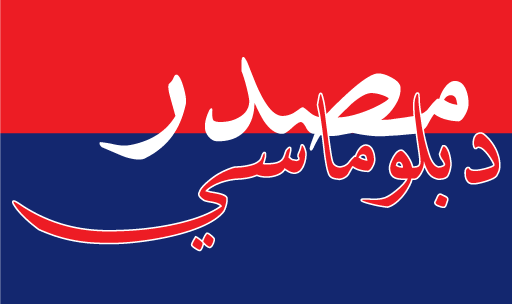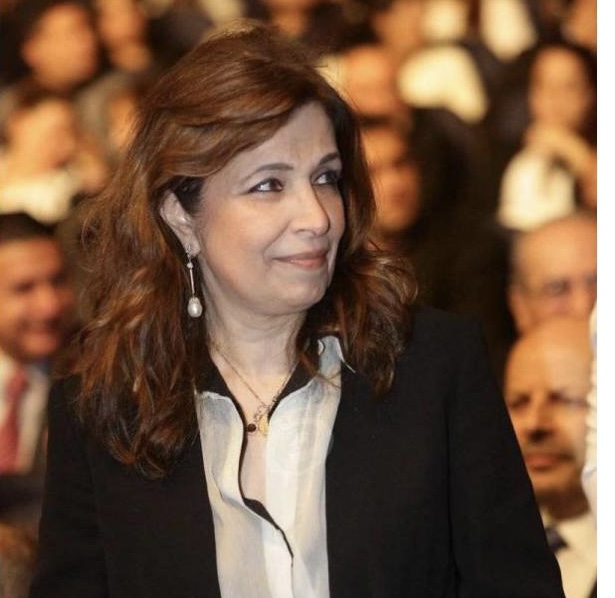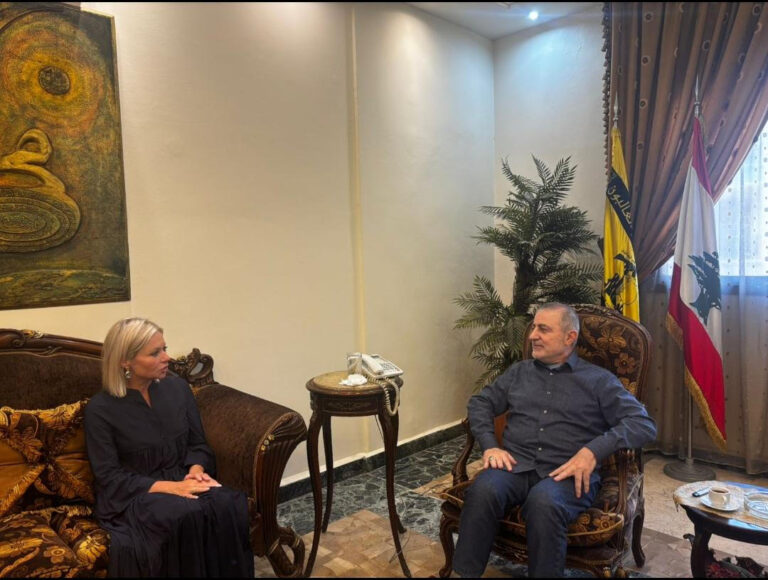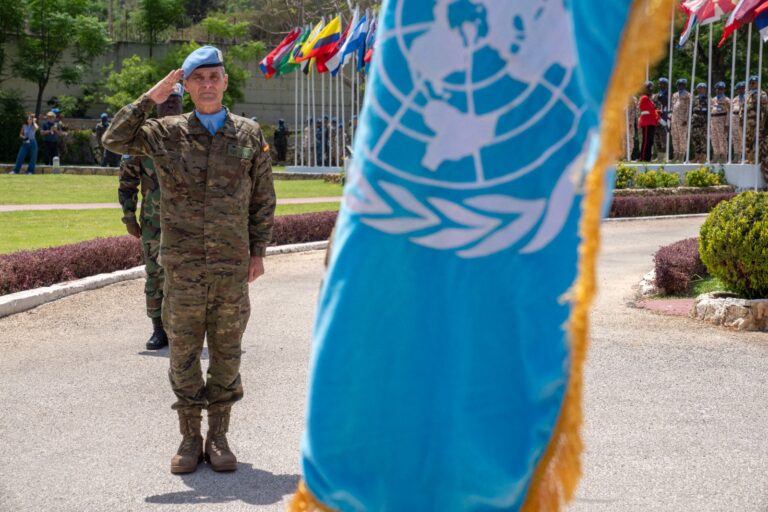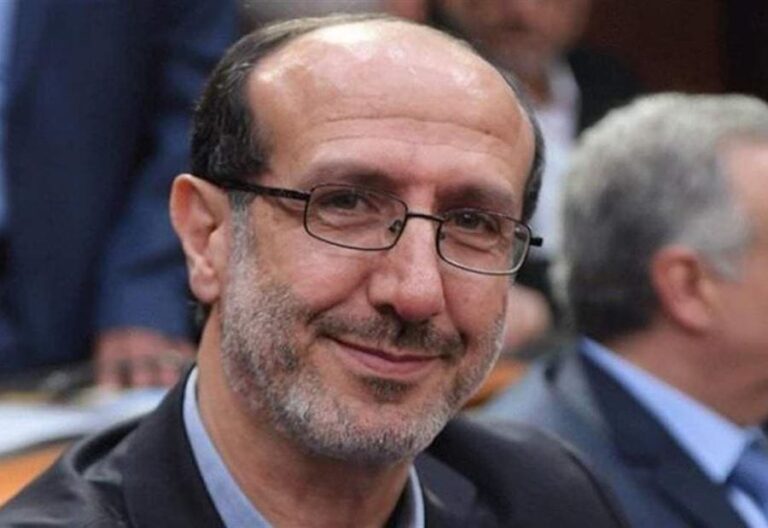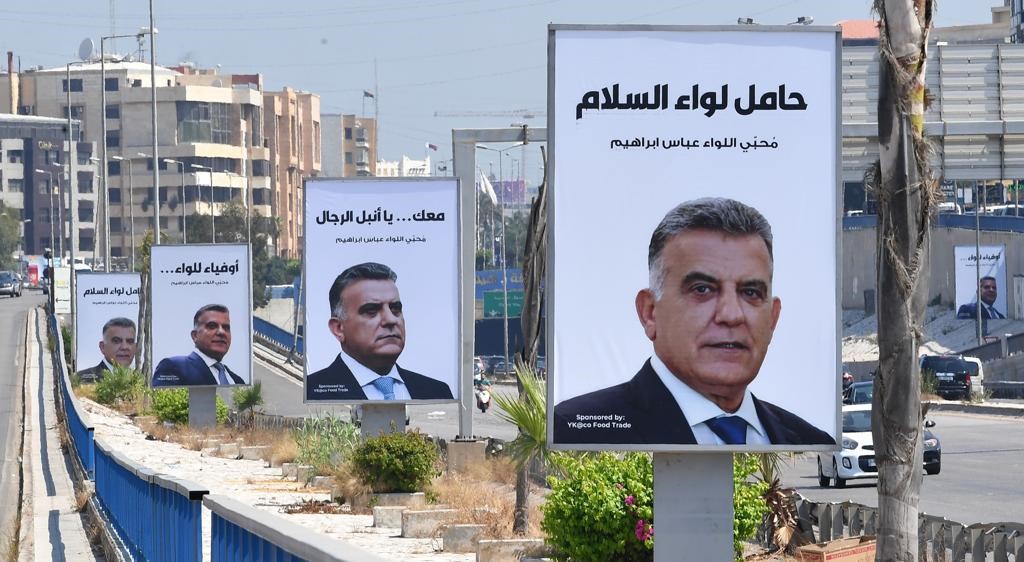
These campaigns focused on billboards issued by "Major General Ibrahim's fans (friends)," who previously expressed themselves on a facebook page few years ago.
Yara El Hindy
AlKalimaonline
On Thursday, August 4, 2020, Director-General of General Security, Major General Abbas Ibrahim, was the first and only Lebanese official, to visit Beirut, roaming the site, the bleeding capital, and declaring in front of the Lebanese and international media: “Attributing the cause of the explosion to explosives is ridiculous”.
At that time, some members of Major General Ibrahim’s family were injured in his house, and a number of General Security soldiers from the port’s General security center were also martyred or injured, due to the pressure of the largest explosion in the world after Hiroshima. But he was keen to console the citizens first, then returned to inspect the wounded members of his family .
Today, after nearly a year has passed, the forensic investigator in the crime that killed 200 Lebanese citizens and destroyed Beirut, Judge Tarek Al-Bitar issued summons through the Lebanese media, before informing the concerned official channels, mentioning ministers, parliament members, and security official, including Major General Abbas Ibrahim.
Since Ibrahim assumed his position at the head of General Security, the Lebanese have become accustomed to the image of a statesman known for his morals, his national path, and his diverse relations regionally and internationally, which allowed him to mediate in several negotiations to liberate many Lebanese and foreign hostages from the clutches of terrorist organizations such as ISIS and Jabhat al-Nusra, and also from the prisons of countries whose regulations are difficult to breach.
Since 2011, the Lebanese have known Major General Ibrahim walking in the rugged mountains of Arsal, following up searches for missing soldiers, or among the mothers of kidnapped soldiers, swearing to help them, or receiving families of the detained in the UAE and elsewhere, or being celebrated after his success in liberating pilgrims or nuns, or comforting a foreign hostage crying after his success in releasing him from detention in Syria or Iran.
Also, the Lebanese are used to the active diplomatic movement of Major General Ibrahim, in which he activated the powers stipulated in the Lebanese General Security Law: he meets with the American National Security Adviser, attends meetings in Damascus with American and Syrian officials to discuss the fate of hostages such as Austin Tice or Majd Kamalmaz and others, meeting in Moscow with security officials and politicians, meeting with the crisis cell at the Elysee Palace in Paris, negotiating with Iraq in order to break the siege of Lebanon and provide fuel so that Lebanon does not fall into total darkness.
And in the Directorate, he was known and feared by everyone because he was strict in his commitment to rules and standards, and never hesitates to punish the corrupt and the negligent or those who disrespect the citizens, considering the service of the Lebanese a right and a duty of the security establishment, thus endowing it with a humanitarian character that it has lacked for years.
After the “media summons” of Judge Al-Bitar were issued, the media outlets, mostly fake accounts on social media rushed to tweet messages and opinions and even reports written in foreign languages to target the international role of Ibrahim in order to distort this bright image that the Lebanese have been accustomed to since 2011.
These campaigns focused on billboards issued by “Major General Ibrahim’s fans (friends),” who previously expressed themselves on afacebook page few years ago.
They raised billboards on the roads between the south and Beirut, holding the photo m Major General Ibrahim, expressing their support, in public and with private funding from them, which is a popular Lebanese traditiom, and it sometimes reached surreal levels, like the time people raised billboards of Singer Nancy Ajram’s husband in Kesrouan, after being accused (falsely), of a murder that was practically in self-defense.
The smearing campaign against Major General Ibrahim is not limited to this. It springs from several platforms, and intertwines into chaotic and confusing means.
Perhaps the only beneficiary was “Al-Forno” bakery owned for a long time by the father of Major General Ibrahim, Kazem Ibrahim, as activists began filming prices and goods from inside, highlighting high prices!
All of this, less than a month before the first year memorial of the Beirut port explosion. This is a deliberate confusion to strike the investigation by dragging the name of Major General Ibrahim into the prosecution, and this is what Interior Minister Mohamed Fahmy waited to consult the legal department in the ministry about.
With his active movement, Ibrahim has always aroused the wrath of many internal parties. “Some of these decided to sell his head to external parties that were harmed by his regional and international role, especially in terms of consolidating relations with the Syrian state,” says one of Ibrahim’s acquaintances, who refused to reveal his name.
An Arab figure who is not loyal to Ibrahim says that “adding Ibrahim’s name, who is known for his political integrity, in the investigation of Beirut port, aims to blow up the investigations in order to exonerate everyone, because Ibrahim’s name is a clear loophole given the powers of the Lebanese General security, which has nothing to do with the port’s goods”.
In this context, the publisher of “Mahkama” website, journalist Ali Al-Moussawi, wrote a detailed report on Judge Al-Bitar’s decisions, titled: Where hit and miss of Judge Al-Bitar in “July 2 List” and the suspicions of the port explosion.
He wrote under a sub-heading, “Instead of Lost”: “In an interview with “Mahkama”, those concerned with the case ask whether Judge Al-Bitar responded to the threats issued by people from the Druze sect in objection to the continued detention of the officer in the Genral Security Lt. Col. Daoud Munir Fayyad, and replaced him with the name of Major General Ibrahim”?
He adds: “Judge Al-Bitar knows, like all Lebanese, the great role that Major General Ibrahim plays in internal and external cases. Therefore, the question must be asked: Wasn’t Al-Bitar able to dismiss his questioning and replace it with an assessment of the evidence he had gathered in the case so that it would be sufficient to prevent his trial? According to the second paragraph of Article 84 of the Code of Criminal Procedure, Al-Moussawi asks, why were other concerned security leaders not summoned, and others were excluded, including Intelligence Director Tony Mansour and others such as the Army Commander, General Joseph Aoun?
In this context, it is important for the public opinion, which is being swamped with campaigns far from reality, each of which carries a different political objective, to know that the powers of the General Directorate of General Security are limited by an organizational decree issued in 1959 and a law issued by the House of Representatives in 1996 (the law organizing the General Security Directorate), and they define the powers of this security apparatus’s work on all Lebanese territories, including ports and sea, land and airports, including the port of Beirut.
Inspecting materials and goods that arrive at the port is not within the authority of the General Security Agency, whose tasks are limited to checking the papers of ships, planes and vehicles, similar to the papers of anyone who enters the Lebanese territory. As for the security of the port, it has laws regulating its work, starting with the administration of the Port of Beirut, passing through the customs, the Ministry of Finance, the Ministry of Public Works and Transport, and all the security agencies concerned.
Therefore, generalizing the prosecutions, meaning putting everyone in the same box, regardless of their powers, the measures they took and the preemptive and warning reports they wrote, and putting them in “one basket” in the Beirut port case does not serve the justice of the case, especially since the Lebanese General Security contacted in 2014, the three presidencies in a report explaining the presence of very dangerous substances, and no one moved.
